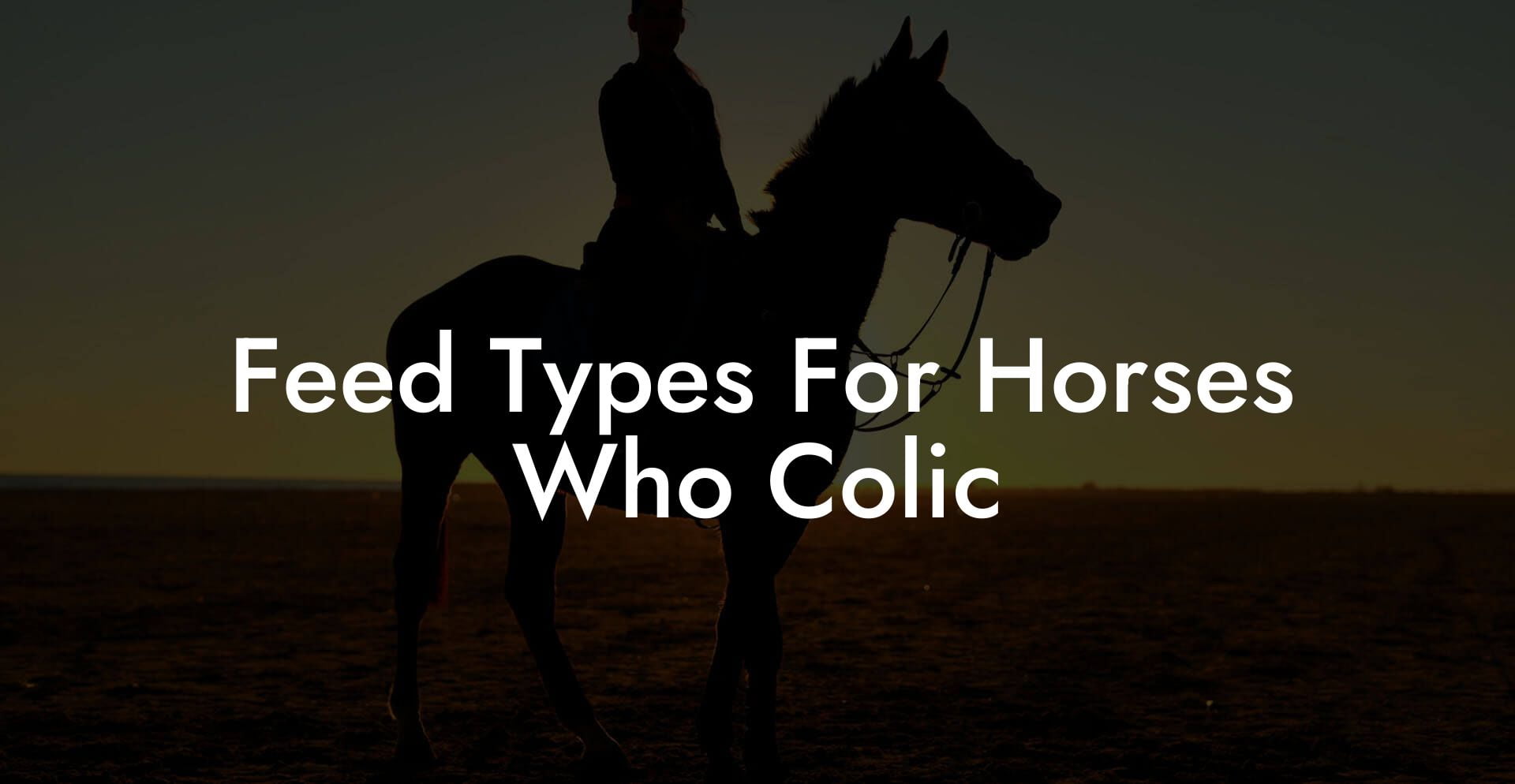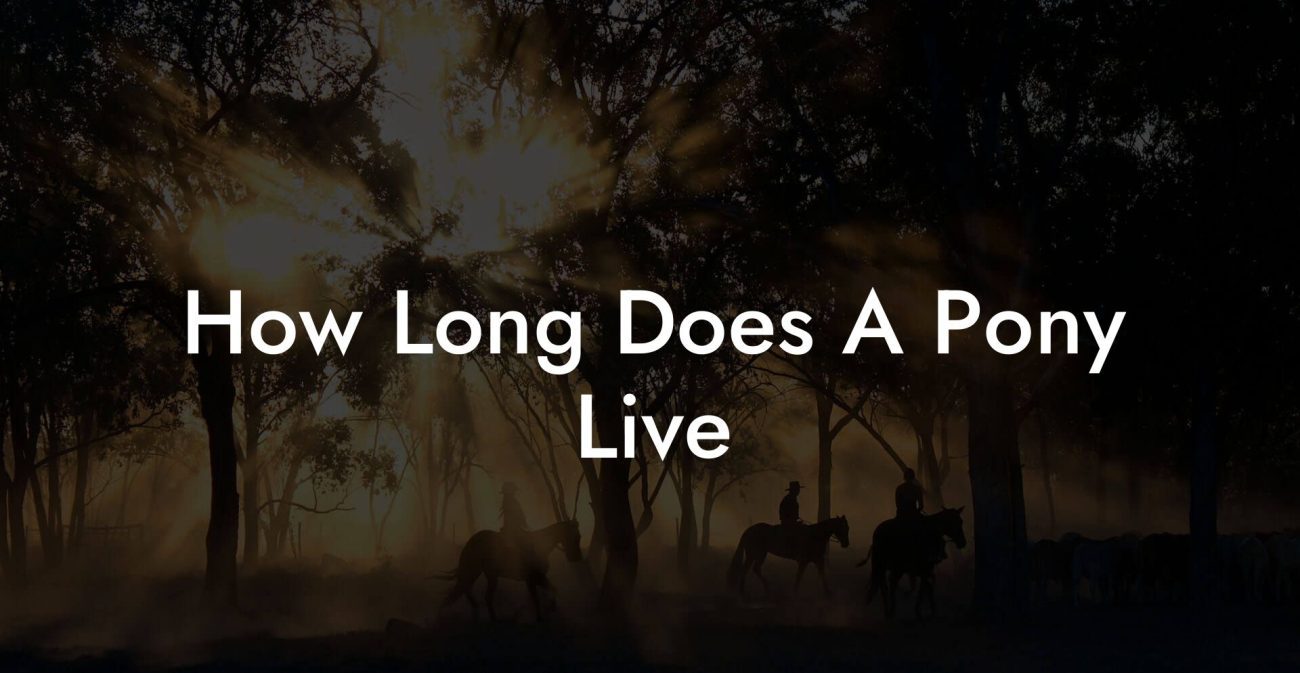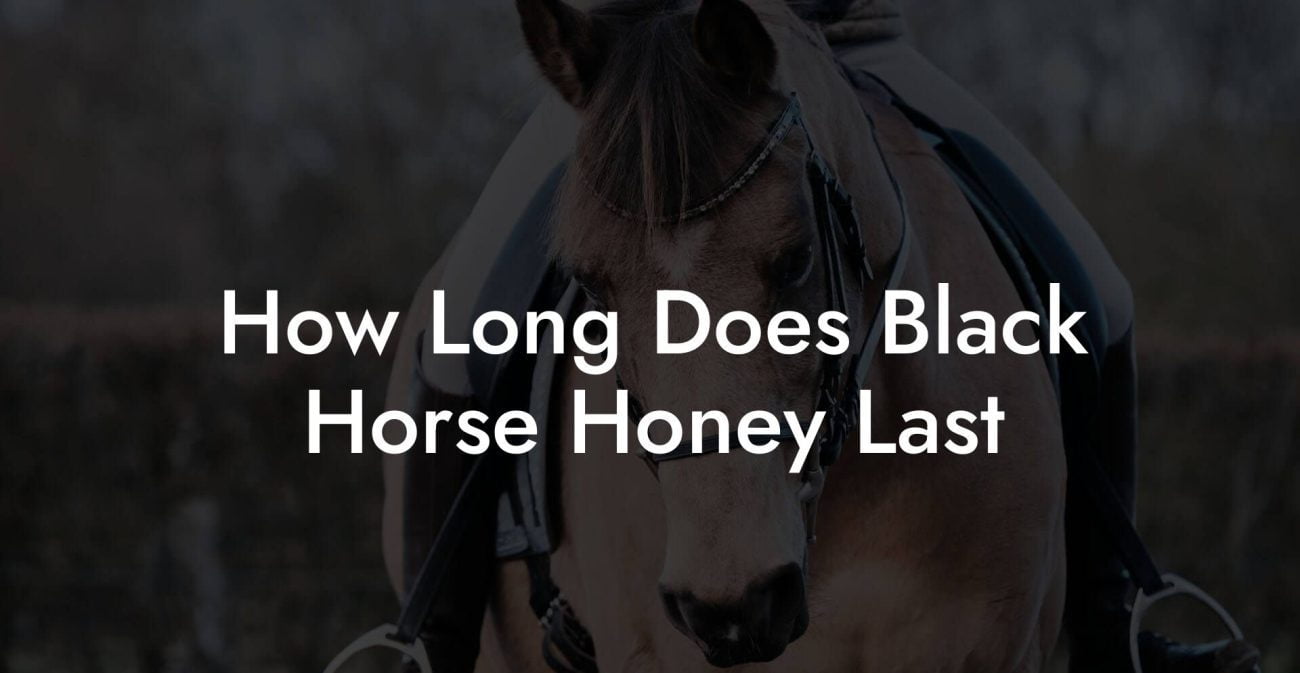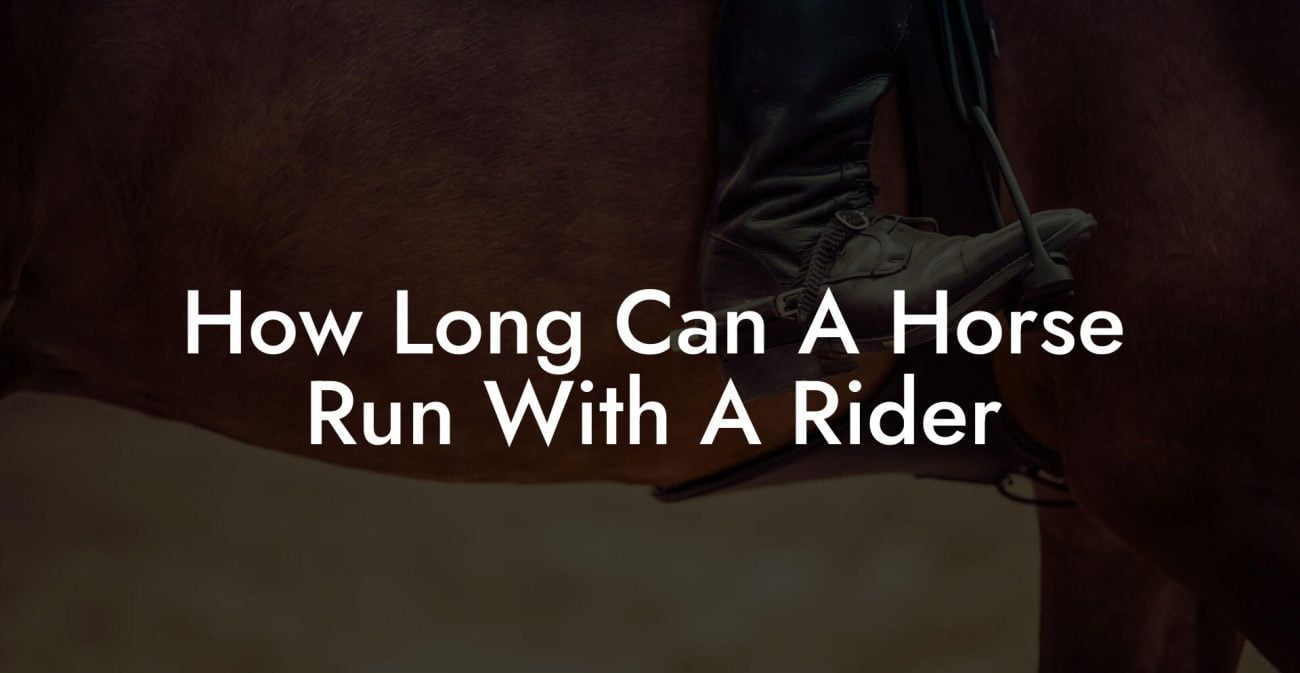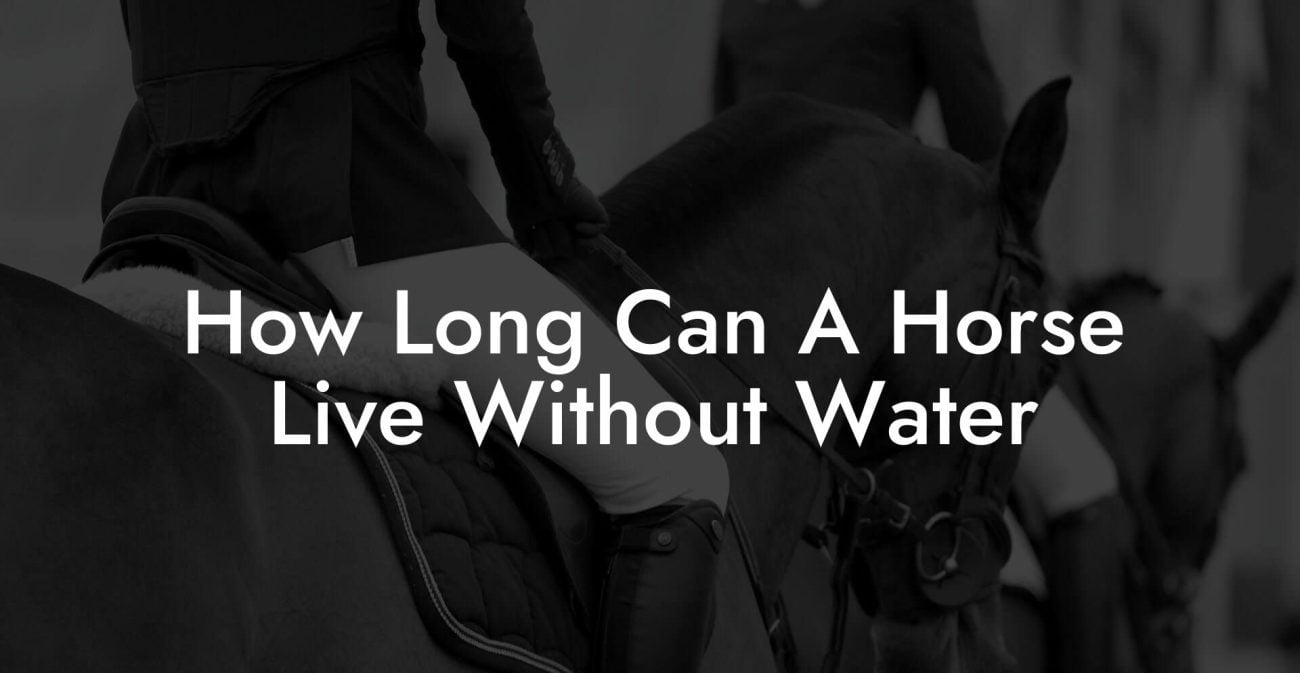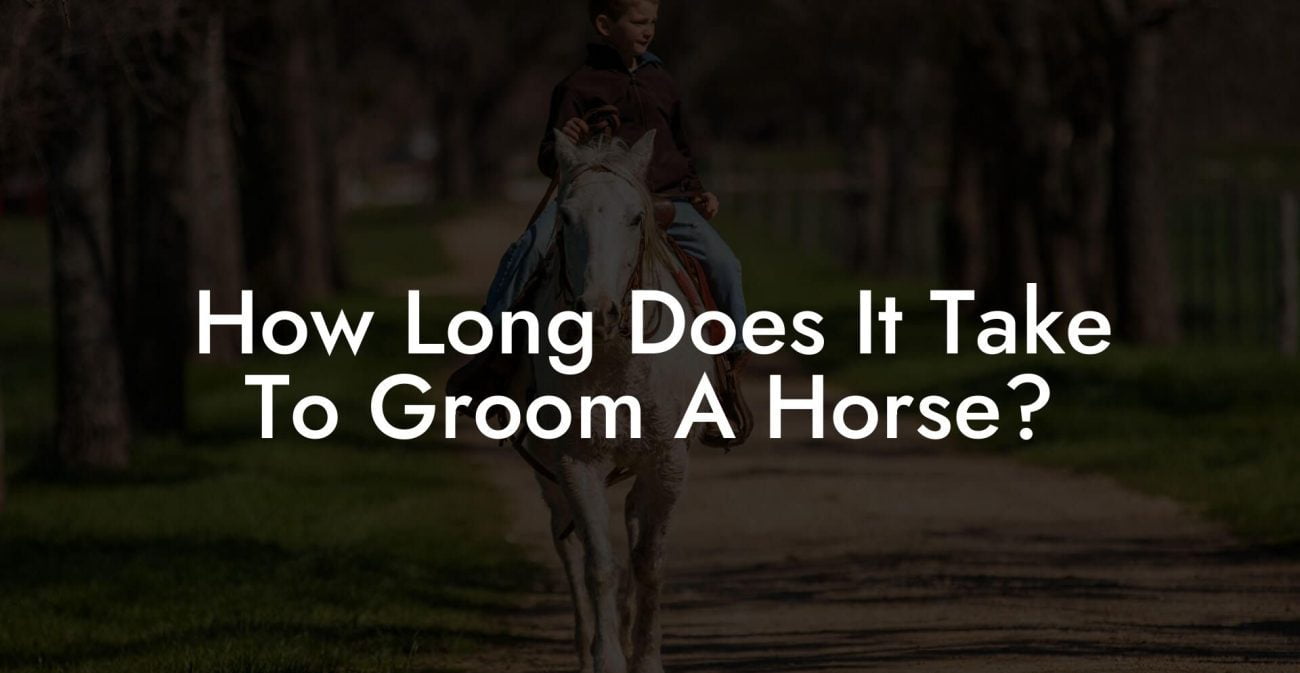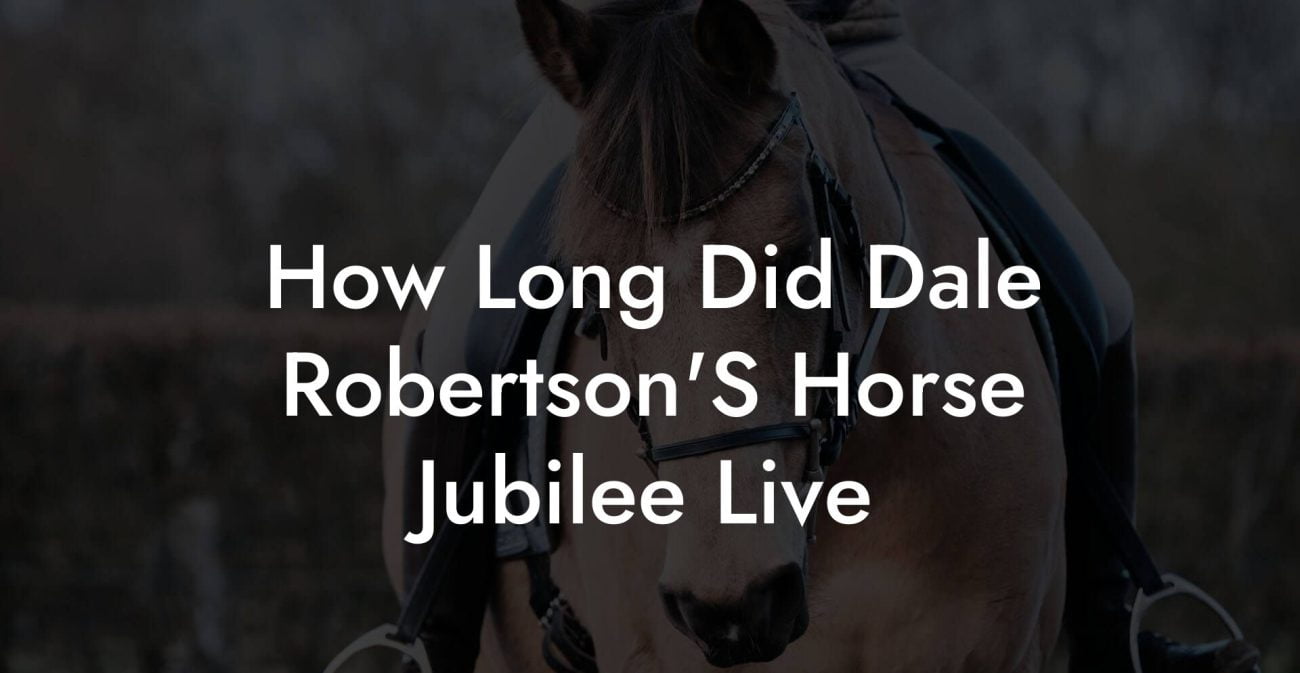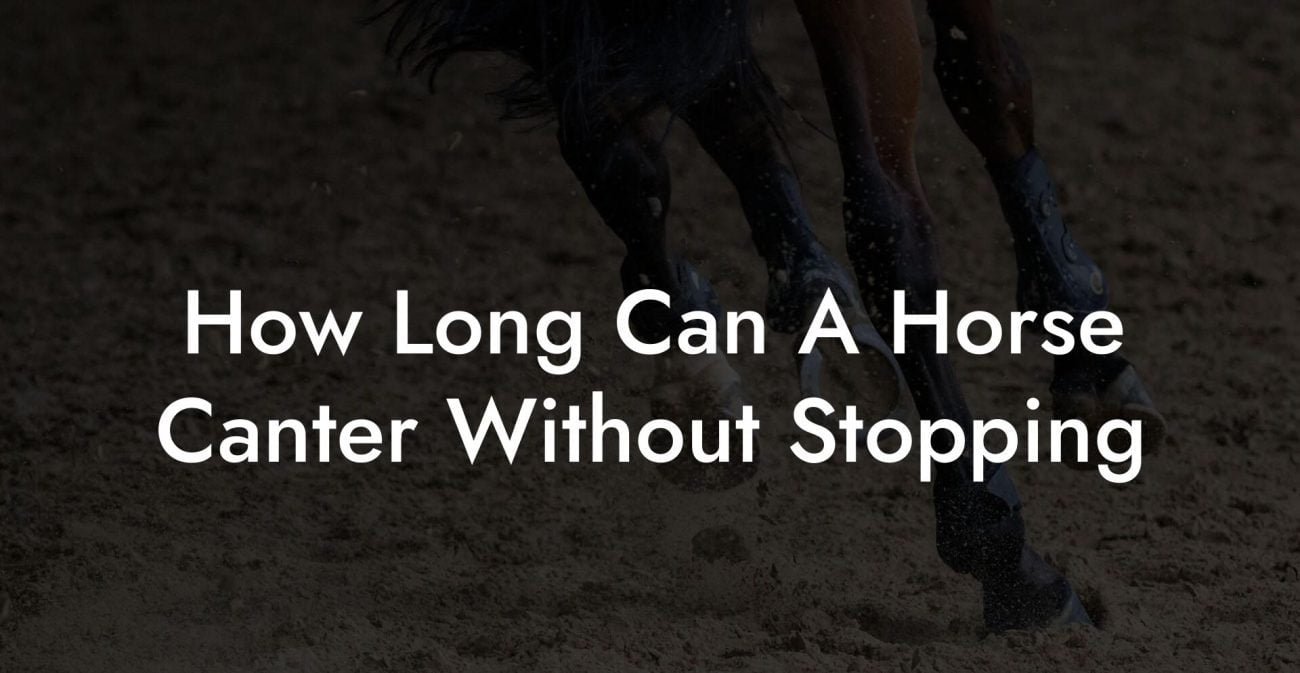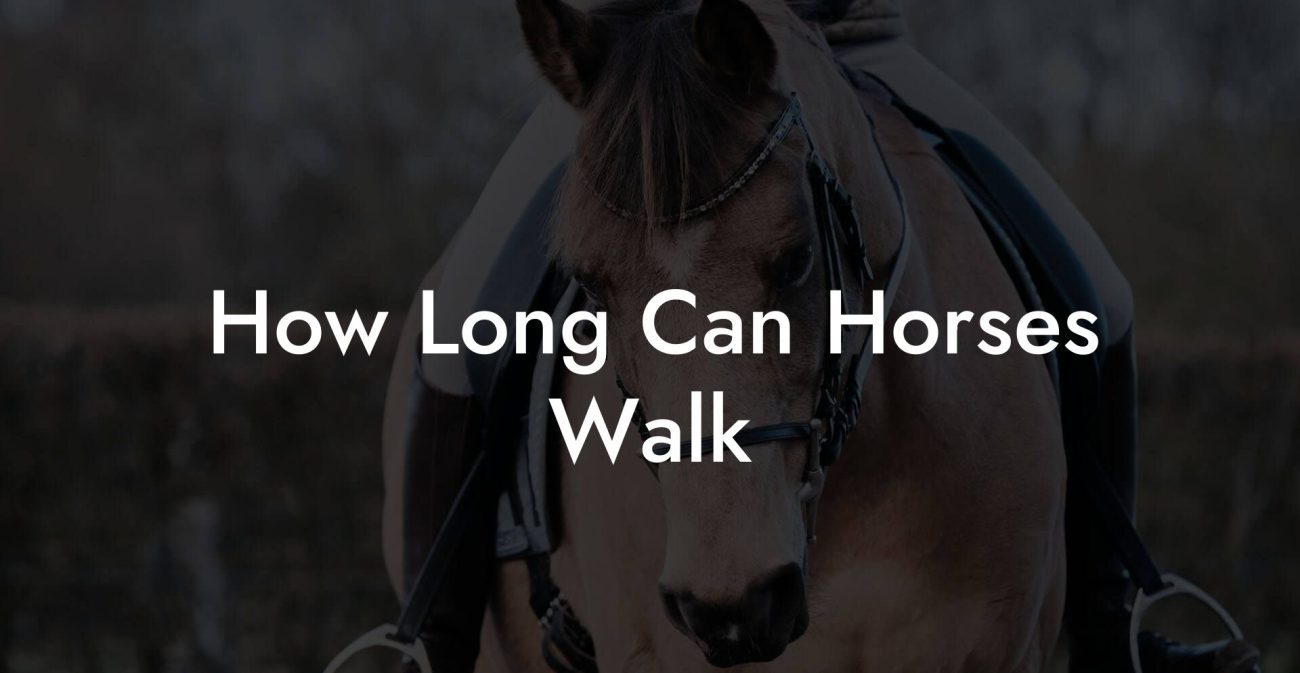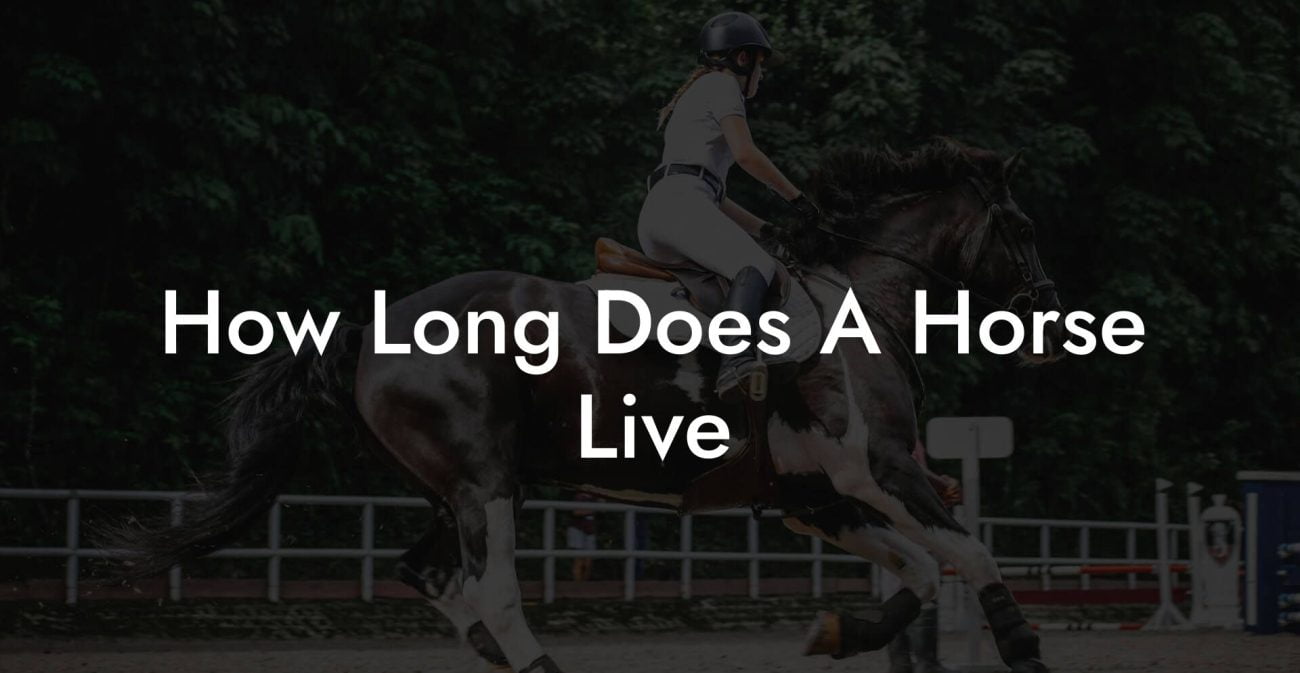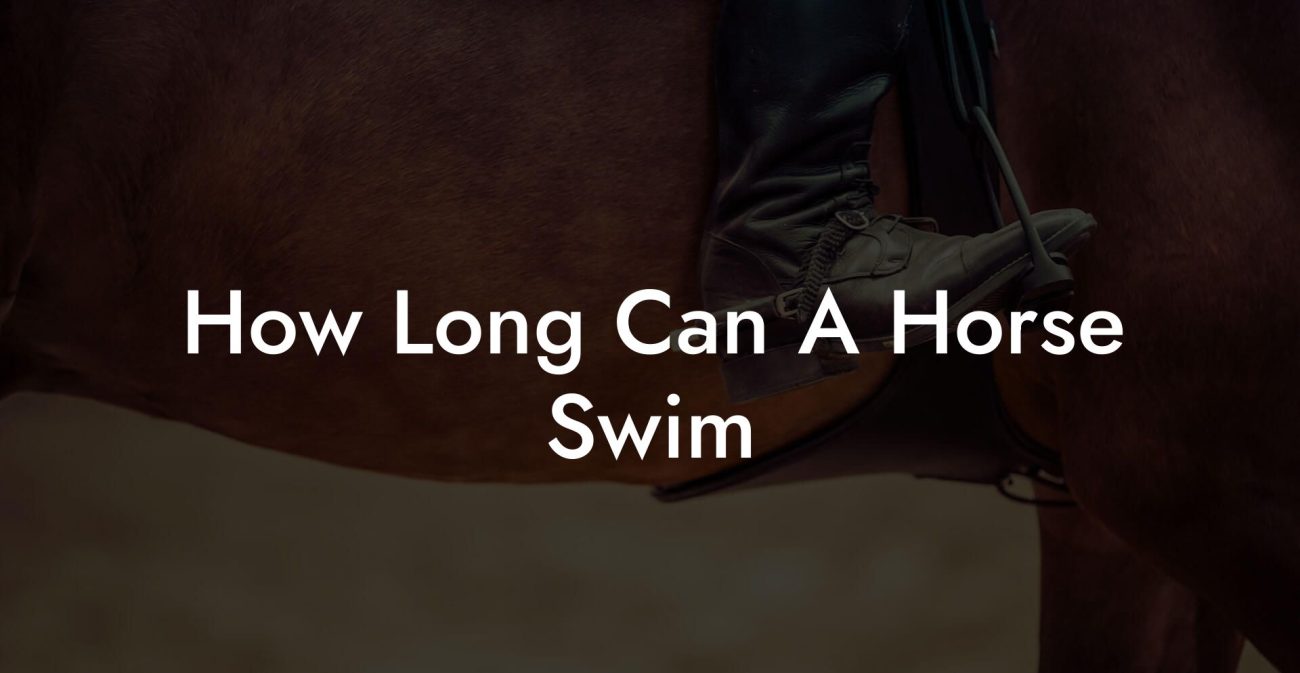When it comes to taking care of your equine companion, especially when colic rears its painful head, the power of the right feed types can be a game-changer. Think of it as giving your horse the ultimate VIP pass to digestive bliss. In this guide, we’re diving deep into the world of horse nutrition with a focus on feed types for horses who colic. Whether you’re a busy millennial juggling work and stable visits or a Gen-Z equine enthusiast scrolling through the latest feed hacks, get ready for a wild ride through high-fiber wonders, safe grains, and everything in between.
Quick Links to Useful Sections
- Understanding Equine Colic: The Unwanted Guest in Your Horse’s Digestive Tract
- The Digestive Dance: How Feed Types Influence Colic
- Feed Types For Horses Who Colic: A Closer Look
- 1. High-Quality Hay: The Backbone of Equine Nutrition
- 2. Concentrate Feeds: Potent but Risky
- 3. Fiber-Enhancing Supplements and Beet Pulp
- 4. Alfalfa Pellets: A Double-Edged Sword
- 5. Prebiotic and Probiotic Feeds: Nurturing the Gut Ecosystem
- Feeding Practices and Transitioning Strategies for Colic-Prone Horses
- Gradual Introductions: The Art of Slow and Steady
- Feeding in Smaller, More Frequent Meals
- Hydration Matters: Pairing Feed with Water
- Monitoring Body Condition and Adjusting Feed Accordingly
- The Role of Nutritional Supplements and Additives in Colic Prevention
- Feeding Myths and Facts: Separating Digestive Truths from Tall Tales
- Resources and Community Support: Your Next Steps
- Integrating Feed Types into a Holistic Management Plan
- FAQ: Feed Types For Horses Who Colic
- Your Road to Digestive Resilience: Empowering Feed Choices for Colic-Free Living
Understanding Equine Colic: The Unwanted Guest in Your Horse’s Digestive Tract
Colic is not just a catchy term used by horse owners to vent their frustrations, it's a serious, sometimes life-threatening condition that affects the gastrointestinal tract of horses. For those uninitiated in equine jargon, colic isn’t a “cool” new hipster cafe; it’s a mismatch between your horse’s gut and its diet, an upset stomach that can lead to severe abdominal pain.
Horse colic can be triggered by various factors, such as sudden changes in diet, overeating, or insufficient fiber intake. Some horses, especially those with a history of colic, require an especially cautious approach when choosing feed. The right type of feed can help prevent impactions, gas buildup, and other gut issues while simultaneously supporting overall digestive health.
In our quest for colic prevention and recovery, understanding the relationship between feed and gut health is paramount. Not only does the feed you choose matter, but also the method and frequency with which it is given. So, let’s saddle up and take a closer look at how different types of feed can support, or sabotage, your horse’s digestive harmony.
The Digestive Dance: How Feed Types Influence Colic
Think of your horse’s digestive system as an elaborate dance performance where every ingredient plays a specific role. A smooth and rhythmic routine means less chance of unexpected stomach twists (colics), while a misstep in the feeding process can lead to a chaotic, painful performance.
The central player in this performance is fiber. Horses have evolved to graze almost continuously; their systems are designed to handle a slow, steady influx of fibrous plants. When feed types are not tailored to these natural habits, the system can easily become overwhelmed, leading to stasis, impaction, or even gas buildup.
On the flip side, overly rich feeds and sudden dietary shifts can unsettle the microbial ecosystem in your horse’s gut, much like an unexpected remix in your favorite song that completely changes the vibe. The key is balance, consistency, and a deep understanding of how each feed ingredient works in harmony with your horse’s physiology.
Feed Types For Horses Who Colic: A Closer Look
Let’s break down the star-studded cast of feed types that have proven beneficial (and sometimes problematic) for horses prone to colic issues. Whether you’re facing chronic colic in your stable or just navigating the maze of feed options at the local supply store, this section will arm you with knowledge to make informed choices.
1. High-Quality Hay: The Backbone of Equine Nutrition
Hay is arguably the foundation of a horse’s diet. For horses who struggle with colic, high-quality hay is indispensable. Not all hay is created equal, mismanaged hay can be dusty, moldy, or low in essential nutrients, each a potential trigger for colic.
Types of hay:
- Grass Hay: Composed primarily of grasses, this option is lighter on calories while rich in fiber. Think timothy or orchard grass hay, which promotes steady digestion and provides the roughage essential for gut health.
- Legume Hay (Alfalfa): Alfalfa hay is high in calories and protein, making it a popular choice for horses with higher energy demands. However, its richness means it should be fed with caution to horses with colic, as overconsumption can sometimes lead to digestive imbalances.
The main takeaway? For horses with a history of colic, opt for high-fiber, low-dust, high-quality grass hay whenever possible. Not only does it provide the ideal texture for digestion, but it also keeps the body humming along with its natural grazing rhythm.
2. Concentrate Feeds: Potent but Risky
Concentrate feeds include grains, pelleted feeds, and various supplements. These feeds are calorie-dense and can provide a quick burst of energy, which is fantastic for performance horses but potentially hazardous for those with colic.
Since concentrate feeds are rich in starches and sugars, feeding too much too quickly can cause rapid fermentation in the hindgut, leading to gas buildup, a red flag for colic. Thus, moderation is key.
Common concentrate options include:
- Grains (Oats, Barley): While oats are one of the more traditional and more digestible grains, they still require careful management in horses with colic. Avoid overfeeding and always consider the horse's overall diet.
- Pelleted Feed: These blends often include vitamins, minerals, and additional fibers but must be introduced gradually. Look specifically for formulations targeted at horses with sensitive digestive systems.
- Commercial Feeds Specially Formulated for Colic-Prone Horses: Many manufacturers now offer feeds that are designed to be gentle on the gut, balancing energy and fiber to support digestive health.
When using concentrate feeds, the mantra is “less is more.” Introducing even small amounts gradually can ease the digestive system into adapting, reducing the risk of imposing an overwhelming load on the gut flora.
3. Fiber-Enhancing Supplements and Beet Pulp
One of the secrets to helping a colic-prone horse is boosting its fiber intake without necessarily increasing bulk. Enter fiber-enhancing supplements and beet pulp, a favorite among horse owners dealing with colic.
Beet Pulp: A by-product of sugar beet processing, beet pulp is a fiber-rich feed that is low in sugar and starch. It provides a slow-release source of energy and is often rehydrated before feeding to further ease digestion. For horses that are susceptible to colic, beet pulp is a safe and effective option to top up fiber levels.
Fiber Supplements: Available in various forms such as pellets or powders, these are designed to support the gut flora and promote steady digestion. When selecting a supplement, be sure to check that it is free from additives or preservatives that might irritate a sensitive stomach.
4. Alfalfa Pellets: A Double-Edged Sword
Alfalfa is a highly nutritious legume. Its high calcium content and protein make it a beneficial addition to many diets; however, for horses prone to colic, it can be both a blessing and a curse. While the pellets are easier to manage and reduce dust exposure, they are calorie-dense. The trick here is moderation and careful monitoring.
Transitioning to alfalfa pellets should be done slowly and under close observation. Overfeeding can lead to imbalances and potentially trigger colic episodes, so use this feed type as a supplemental component rather than the primary source.
5. Prebiotic and Probiotic Feeds: Nurturing the Gut Ecosystem
The horse’s digestive system is a delicate ecosystem, and feeding it the right probiotics can often be the secret sauce in managing colic risks. Prebiotic and probiotic feeds help cultivate a healthy balance of gut bacteria which plays a critical role in the digestion and overall immunity.
Many equine nutrition experts tout the benefits of fermented feeds and specially formulated probiotic supplements as a way to ensure that the microbial balance remains in check. Look for products that have been independently tested and recommended by veterinarians specializing in equine gastrointestinal health.
When integrated correctly into your horse’s diet, these feed options can be instrumental in reducing the incidence of colic, stabilizing digestion, and promoting overall gut health.
Feeding Practices and Transitioning Strategies for Colic-Prone Horses
Not only does the type of feed matter, but the way you deliver it is equally important. Horses thrive on routine, and any abrupt changes in their diet can shock their system. If your horse has a history of colic, consider these tried and true feeding practices:
Gradual Introductions: The Art of Slow and Steady
Changing your horse’s diet should be approached like introducing a new band to your favorite playlist, slowly and with plenty of time for everyone to adjust. When transitioning to a new feed type, mix the new feed with the old in gradually increasing proportions. For example, start with 10% new feed and 90% current feed, then slowly increase the ratio over a period of 10-14 days.
This gradual introduction helps prevent the sudden imbalance of gut flora and reduces the risk of colic by giving the digestive system time to adapt.
Feeding in Smaller, More Frequent Meals
Horses evolved as continuous grazers, and their digestive systems are engineered to process small amounts of food over extended periods. For horses susceptible to colic, feeding small, frequent meals is much better than offering one or two large feedings per day.
Dividing feed into multiple meals helps maintain steady gut motility and avoids the sudden overload that can trigger colic symptoms. Whether you’re using hay, concentrates, or supplements, consistency in feeding times lends stability to your horse’s gastrointestinal system.
Hydration Matters: Pairing Feed with Water
Fiber without adequate hydration is a recipe for disaster, literally. Ensuring that your horse has constant access to clean, fresh water is a vital part of any feeding strategy, especially for colic-prone horses. Water works synergistically with fiber, softening feed particles and promoting smoother digestion.
If your horse isn’t drinking enough, consider adding electrolytes or providing a water booster under veterinary guidance. This strategy not only supports digestion but also helps regulate overall metabolism.
Monitoring Body Condition and Adjusting Feed Accordingly
Every horse is unique, and just like your favorite playlist evolves with your mood, your horse’s feed requirements should be adjusted over time. Regularly monitor your horse’s body condition score and overall health. If you notice unexplained weight changes or behavioral signs of discomfort, it might be time to re-evaluate the feed types or quantities.
Collaborate with your equine nutritionist or veterinarian to develop a dynamic feeding plan that reflects your horse’s current needs, keeping colic risks at bay without sacrificing nutritional quality.
The Role of Nutritional Supplements and Additives in Colic Prevention
Sometimes, even a well-structured feed plan might need a little boost, and that’s where nutritional supplements come into play. For horses with chronic colic issues or those in recovery, certain additives can help soothe inflammation, promote gut motility, and even aid in rebalancing gut flora.
Key supplements include:
- Electrolyte Balancers: Useful especially during cold weather or periods of stress, these supplements help maintain hydration and electrolyte balance, ensuring that digestive movements remain steady.
- Digestive Enzymes: Designed to help break down food more efficiently, these enzymes can ease the workload on your horse’s digestive system and prevent buildup that might lead to colic.
- Herbal Additives: Natural botanicals like ginger and peppermint are sometimes used to soothe the stomach and aid digestion. While research is ongoing, many horse owners have seen positive results when these are used under proper guidance.
Remember, supplements are exactly that, a supplement to a well-balanced diet, not a replacement. Always consult your vet before adding new supplements to your horse’s regimen, especially if colic is a recurring issue.
Feeding Myths and Facts: Separating Digestive Truths from Tall Tales
In the vast world of equine nutrition, myths can be as common as hay in a barn. Let’s debunk a few common misconceptions about feed types for horses who colic:
- Myth: “All hay is created equal.”
Fact: The quality, type, and even the harvesting method of hay can drastically affect its nutritional profile and dust content. Always opt for high-quality, dust-free hay to support gut health. - Myth: “Feeding more concentrate equals more energy.”
Fact: While concentrates do provide calories, overfeeding them can upset the horse’s delicate digestive balance, leading to colic. Moderation and gradual transitions are essential. - Myth: “Supplements can replace a balanced feed.”
Fact: Supplements should always work in synergy with a complete feed plan. They are not cures but rather enhancers to support the digestive process. - Myth: “A horse can bounce back quickly from colic by eating a single type of feed.”
Fact: Recovery from colic often requires a multifaceted approach, adjusting feed, providing hydration, and sometimes integrating digestive aids to ensure a smooth return to normal gut function.
Dispelling these myths is a crucial step in creating a safe and reliable feeding plan that minimizes colic risks and promotes long-term digestive health.
Resources and Community Support: Your Next Steps
Navigating the intricate world of feed types for horses who colic can feel overwhelming, but you’re not alone on this journey. There are countless resources and communities dedicated to equine nutrition and health, offering support, advice, and firsthand stories from horse owners who’ve been in your shoes.
Begin by exploring the following resources:
- Equine Nutrition Associations: Organizations like the American Association of Equine Practitioners (AAEP) offer guidelines, research, and advice tailored to equine health challenges including colic.
- Online Forums and Social Media Groups: Join communities on platforms such as Facebook, Reddit, or specialized equine wellness blogs, where horse owners share tips on feed transitions, safe feeding practices, and success stories.
- Veterinary Consultation: Establish a relationship with an equine nutritionist or veterinarian who understands colic risks. Their advice can be crucial in customizing a feeding plan to suit your horse’s unique needs.
- Local Feed Stores and Equine Expos: Attend events where experts discuss the latest developments in horse feeds and nutritional supplements. Networking with fellow horse owners often leads to practical insights and ready-made solutions.
By building connections with knowledgeable professionals and engaging with the passionate equine community, you can stay up-to-date on the latest research and feeding strategies, ensuring that your horse receives the best possible care.
Integrating Feed Types into a Holistic Management Plan
Recognizing that feed types are only one piece of the colic-prevention puzzle is vital. A truly holistic management plan also considers exercise, environmental factors, and stress management. When everything works in tandem, your horse’s overall well-being improves, reducing the likelihood of digestive mishaps.
Here are some holistic strategies:
- Routine Exercise: Regular, controlled exercise promotes gut motility and overall digestive function. Even light paddock turnout can make a significant difference.
- Stress Reduction: Horses are sensitive creatures. A calm, consistent routine can reduce anxiety, which in turn promotes smoother digestion.
- Environmental Enrichment: Ensuring your horse has a clean, safe, and engaging environment complements a well-planned diet. This comprehensive approach supports both physical and mental health.
- Regular Health Checks: Regular check-ups with your vet can catch early signs of digestive distress and help adjust your feeding protocols before colic develops.
By integrating these practices with a balanced feed regimen, you’re setting the stage for sustained digestive health and overall wellness, transforming mealtime from a potential hazard into a vibrant, healing ritual.
FAQ: Feed Types For Horses Who Colic
Here are some frequently asked questions to help guide you through the maze of feed options and colic prevention strategies:
1. What exactly is colic, and why is my horse at risk?
Colic refers to abdominal pain in horses, often caused by disruptions in the digestive process. Horses at risk are usually those with sudden dietary changes, low-fiber diets, or high intake of concentrates.
2. Which feed types are considered safest for horses prone to colic?
High-quality, low-dust grass hay is generally the safest option. Additionally, specially formulated concentrates, beet pulp, and fiber supplements are recommended when introduced gradually.
3. How do concentrates contribute to colic?
Concentrates are calorie-dense and high in starch. Overfeeding them can lead to rapid fermentation in the hindgut, causing gas buildup and potentially triggering colic episodes.
4. Can I switch feed types suddenly if my horse shows signs of colic?
Abrupt changes in diet can be dangerous. Always introduce any new feed gradually over 10-14 days to allow your horse’s digestive system time to adjust.
5. What role do probiotics play in a colic-prevention diet?
Probiotics help balance the gut flora and improve overall digestion. They can be particularly beneficial when integrated into a regular feeding routine for horses with sensitive digestive systems.
6. How critical is hydration in preventing colic?
Hydration is crucial. Water helps fiber move smoothly through the digestive tract, so always ensure your horse has access to clean, fresh water.
7. Are there any specific supplements that can reduce colic risk?
Yes, supplements like electrolytes, digestive enzymes, and certain herbal additives can help manage and prevent colic when used as part of a balanced diet.
8. What should I do if my horse has a severe colic episode?
In cases of severe colic, it’s imperative to contact a veterinarian immediately. Do not attempt to change the feed alone; professional guidance is essential.
9. Can environmental factors influence colic in horses?
Absolutely. Stress, a lack of exercise, and abrupt changes in feeding routine or surroundings can all contribute to colic, highlighting the need for a holistic management approach.
10. How often should I review my horse’s feeding plan with a professional?
Regular consultations, at least twice a year or when any changes in behavior or health are observed, are recommended to keep your horse’s nutritional plan in optimal balance.
Your Road to Digestive Resilience: Empowering Feed Choices for Colic-Free Living
The journey toward a colic-free life for your horse begins at the feed trough. By understanding the ins and outs of feed types for horses who colic, you can make empowered decisions that nurture robust digestion and overall vitality. This isn’t just about feeding; it’s about creating a stable, nourishing environment where your horse’s digestive system can thrive.
Every careful measurement of hay, every cautious introduction of concentrate, and every mindful addition of supplements lays down the foundation for a healthier, happier horse. Embrace the process, trust the brew of traditional wisdom and modern science, and witness the transformative power of a balanced diet.
With the right feed strategies, informed by both scientific research and the hands-on experience of dedicated horse enthusiasts, you hold the reins of change. In your quest for equine excellence, every small adjustment counts. Your horse, and its sensitive gut, will thank you for it.

